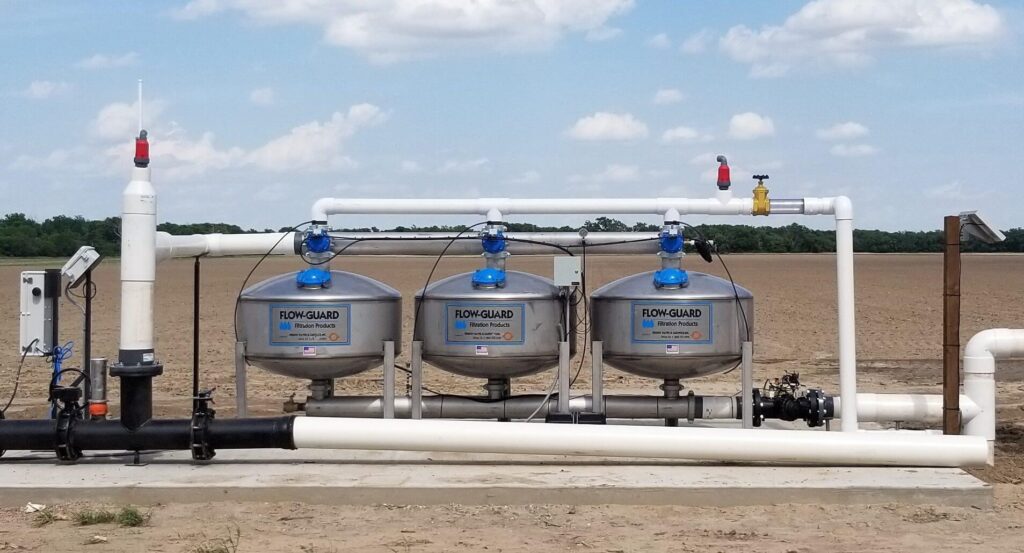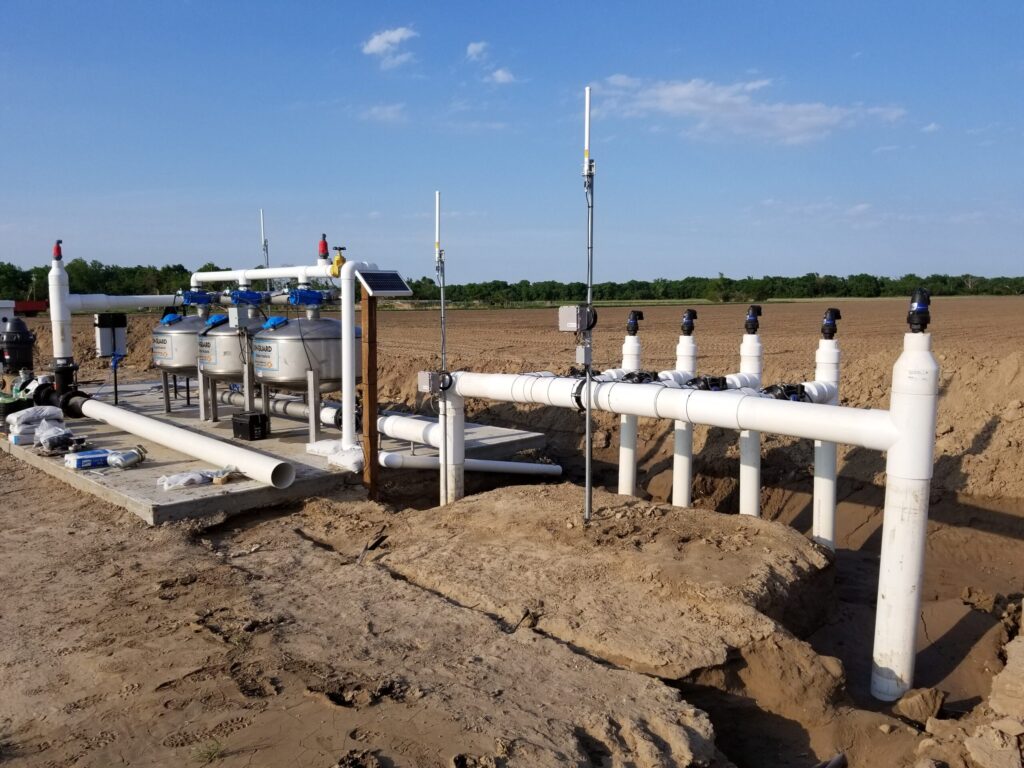Revolutionizing Agriculture: A Deep Dive into Agricultural Water Filtration
The agricultural landscape is continually evolving, with innovation and technology at the forefront of its transformation. Among these advancements, one of the most significant has been the incorporation of water filtration systems into farming practices. This article takes a deep dive into the world of agricultural water filtration, a revolution that’s reshaping traditional farming methods, enhancing crop yields, and promoting a more sustainable future. The importance of this topic is immeasurable as it bridges the gap between efficient farming and environmental preservation.
The Need for Water Filtration in Agriculture
The need for advanced water filtration in agriculture has never been more critical. With the advent of high-efficiency reverse osmosis systems, farmers can strip polluted groundwater of impurities, significantly reducing Total Dissolved Solids (TDS) and ensuring cleaner, safer water for crops.
Reverse Osmosis (RO) systems have indeed become a necessity in modern farming. Apart from providing clean and reusable water, these systems contribute considerably to improving soil quality. This, in turn, promotes healthier plant growth and increases crop yield.
Water filtration plays a substantial role in agriculture and irrigation. By enhancing water quality through the removal of contaminants, these systems foster healthier crop growth, leading to improved yield and quality.
In addition, the use of treated water in agriculture presents numerous benefits. Notably, it provides plants with essential nutrients, promoting their health and productivity.
The application of reverse osmosis water treatment technology is particularly prevalent in agricultural production. From greenhouses to aquaculture, RO systems are utilized extensively to ensure optimal water quality for various agricultural practices.

Understanding Agricultural Water Filtration
Water is a fundamental resource in agriculture, and its quality directly impacts crop health and yield. Agricultural water filtration is a process that removes contaminants from water to ensure it’s safe and beneficial for plant growth. As the demand for food production intensifies, understanding and implementing advanced water filtration systems have become crucial for sustainable agriculture.
Agricultural water can be contaminated with various substances, including sediments, chemicals, and harmful microorganisms. These contaminants can negatively affect plant health, reduce crop yield, and even pose health risks to consumers.
Water filtration systems used in agriculture range from simple sediment filters to more complex reverse osmosis systems. Sediment filters remove larger particles like sand, silt, and clay, while reverse osmosis systems can remove dissolved salts, minerals, and certain microorganisms.
In addition to improving water quality, agricultural water filtration systems also contribute to water conservation. By recycling wastewater through advanced treatment processes, farmers can significantly reduce their water usage. This is particularly important in regions where water scarcity is a major issue.
Furthermore, water filtration can enhance the effectiveness of irrigation systems. Clogged irrigation equipment is a common problem in agriculture, often caused by sediment-laden water. By removing these sediments, water filtration can improve the efficiency and lifespan of irrigation systems.
The Impact of Water Filtration on Farm Productivity and Crop Yields
Water filtration systems have a significant impact on farm productivity and crop yields. By delivering clean, nutrient-rich water to plants, these systems can effectively eliminate contaminants, thereby positively impacting crop health and yield.
Studies have shown that the application of sub-membrane drip irrigation, which includes a water filtration process, can increase the yield of wheat by 14.6–19.6% and crop water productivity by 27.3–29.6%.
Water filtration can also help improve overall agricultural production and protect crops and livestock by providing purified water, free from harmful substances.
Water filters play an essential role in improving water quality for agriculture. They remove impurities, pollutants, and excess minerals, leading to clean and high-quality water for crops, animals, and other farming activities.
Interestingly, even wastewater, when properly treated and irrigated, can have a positive impact on crop yield. However, its effect varies and largely depends on the treatment process and the type of crops grown.
Irrigation, particularly when combined with efficient water filtration systems, increases yields not only through the reduction or prevention of crop water stress but also through the complementary benefits of combined use of irrigation and fertilization.
Furthermore, the reuse of poor-quality water, when treated appropriately, can lead to sustainable crop production. Crop productivity increases by 10–36 percent when diluted or undiluted wastewater is reused.

Agricultural Water Filtration and Sustainability
Water filtration for agriculture cultivation plays a crucial role in ensuring the sustainability and success of agricultural practices. Providing clean and high-quality water, it helps enhance crop yield and improves the overall productivity of farms.
Agricultural water filtration aids in removing unwanted impurities, thereby ensuring that plants receive only the necessary nutrients for optimal growth. While purified water quality is not currently included in organic certifications, it will inevitably play a larger role in safe, sustainable agriculture.
Agricultural water treatment is a critical component of sustainable farming practices. It involves using various methods to treat water used in agriculture, thereby improving its quality and making it safe for use.
Sustainable farming practices that can improve water quality include developing a water filtration system. Agricultural runoff has increased contamination in surface water, thus increasing the need for water filtration.
Sustainable agriculture and nature-based solutions help filter out pollutants from agricultural runoff before it reaches water bodies. Modern water treatment technologies are revolutionizing smart agriculture, which is seen as the future of farming.
Sustainable farming requires the best water technology. Advanced water filtration solutions have become indispensable for farms and ranches. Current challenges and trends, as well as opportunities for sustainability and innovation, are being explored in the fields of water management in agriculture and industry.
In conclusion, the incorporation of water filtration systems in agriculture is a significant development that has revolutionized traditional farming practices. By providing clean and safe water for crops, these systems have proven to enhance yields, boost farm productivity, and promote sustainable farming methods. As technology continues to advance and our understanding of water filtration improves, we can only expect further improvements in the agriculture industry. Agricultural water filtration is not just a trend but a necessity for achieving a more sustainable and efficient future of farming. Let us continue to support this development and work towards a healthier planet for generations to come. So join us as we embark on this journey towards a greener, cleaner, and more prosperous future in agriculture through the use of water filtration systems. As we continue to discover new and innovative ways to improve farming practices, let us not forget the essential role that clean and safe water plays in ensuring a sustainable and secure food supply for our growing population. With agricultural water filtration, we can make a positive impact on both the environment and our economy, making it a vital aspect of modern agriculture.
